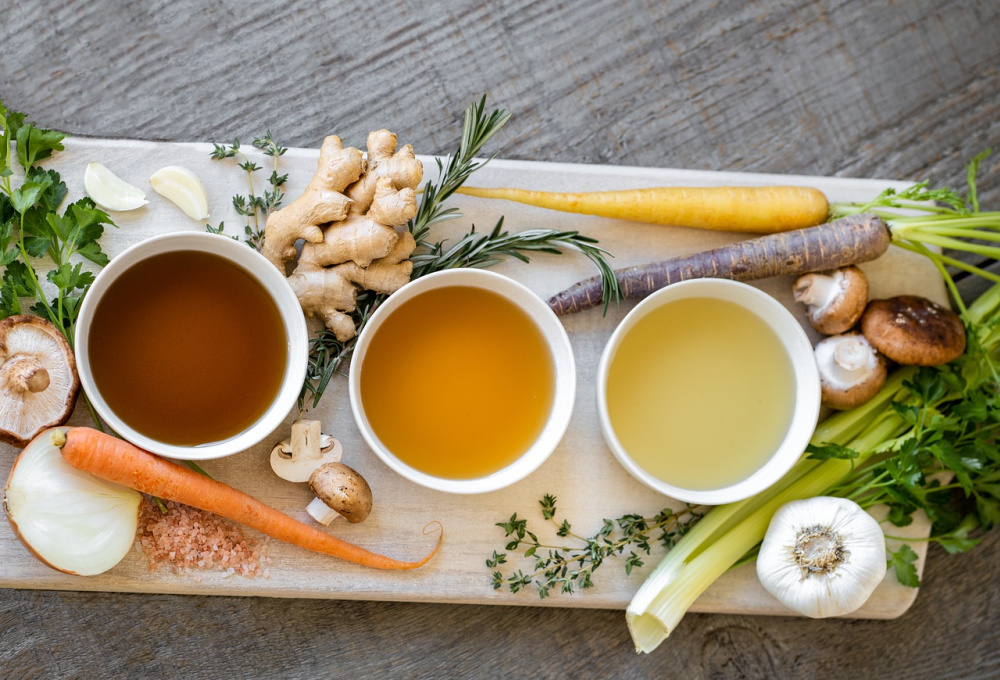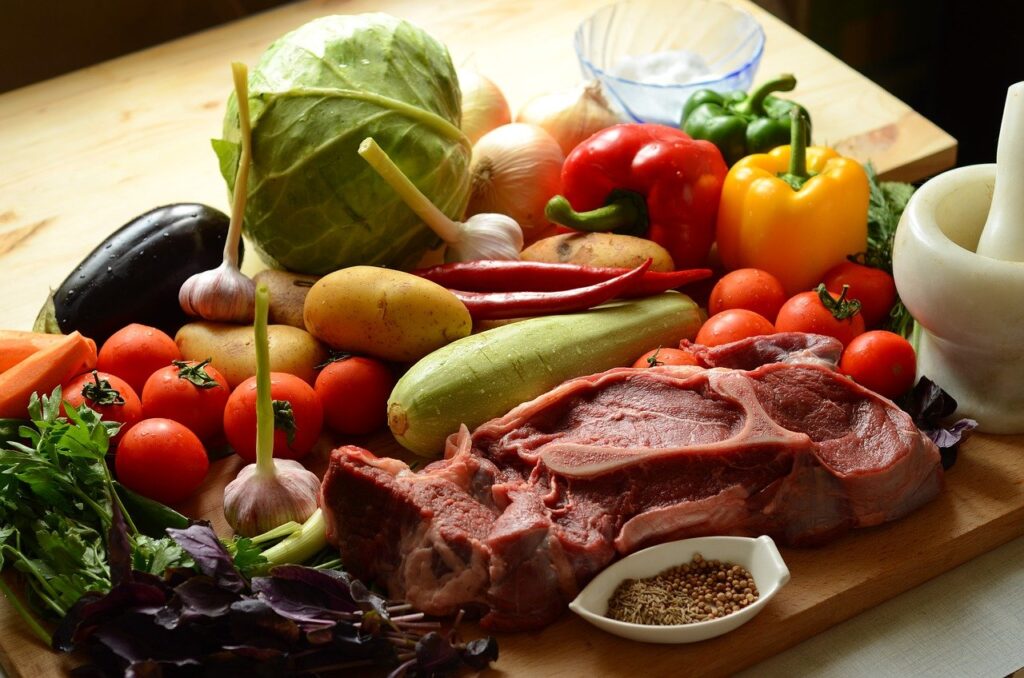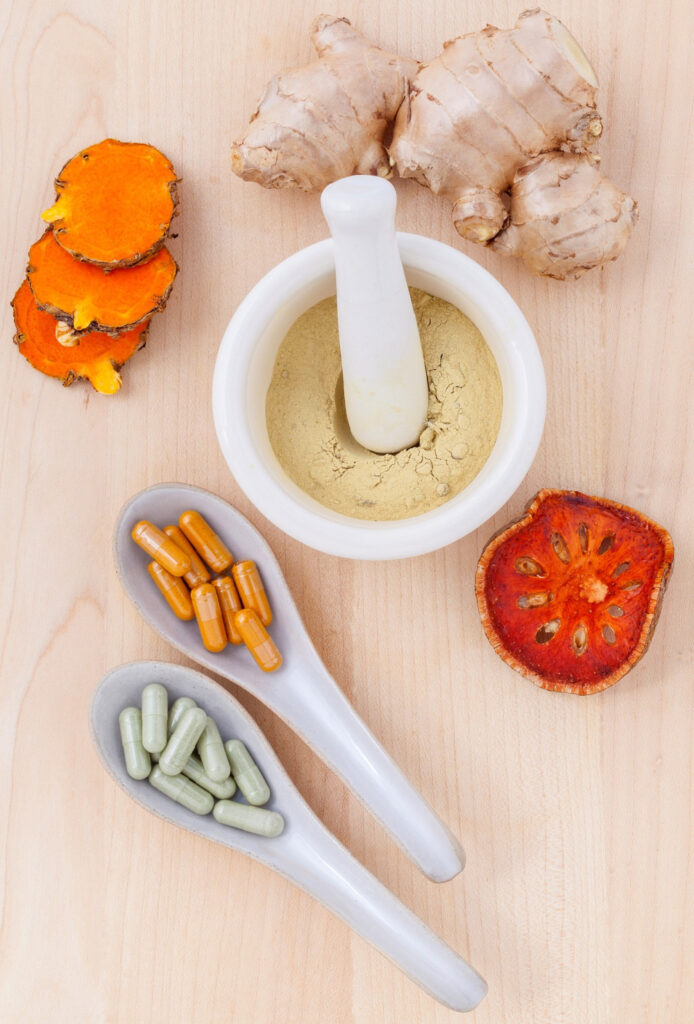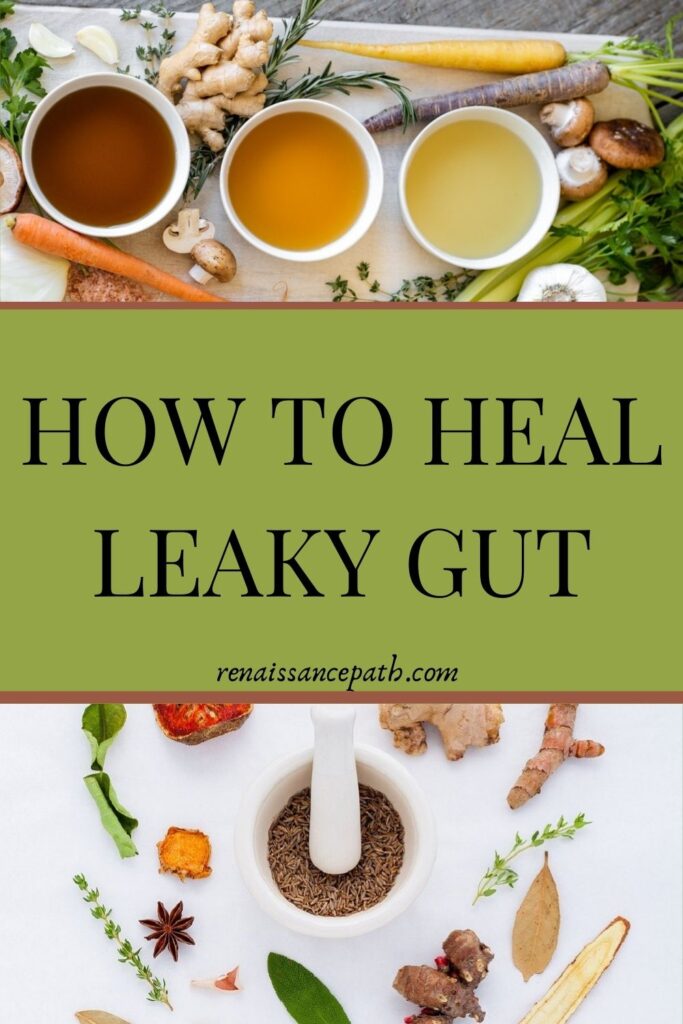
Some of the links on this page contain affiliate links. Renaissance Path is a participant in the Amazon Associates Program, an affiliate advertising program that provides a way for websites to earn advertising fees by linking to products. We only link to products we normally use and trust. When you purchase an item through the link we receive a small commission at no additional cost to you. This helps pay for the costs associated with running this blog. Your support is greatly appreciated. Thank You!
What is Leaky Gut?
How to Heal Leaky Gut is talked about a lot in Functional Medicine and has become a bit of a buzzword lately. What exactly is leaky gut and is it a real thing? Intestinal permeability is another word for Leaky Gut. Allopathic medicine seems to dismiss ‘’Leaky Gut” as a diagnosis alternative practitioners throw around. But if we look to the evidence, there are quite a bit of published medical studies supporting that theory.
Humans have more microorganisms in their bodies than cells. We have 100 trillion! We have ten times more bacteria in our guts than cells. Science is just beginning to see how our gut bacteria can affect our health.
It’s said that 70% of your immune system is located in your intestinal tract. Undoubtedly with the digestive tract being one of your first lines of defense it’s important to have good gut health.
Leaky Gut explained
Leaky Gut is where the intestinal digestive tract becomes increasingly permeable (leaky) allowing undigested food particles, antigens, toxins and bacteria to pass through the gut wall causing a plethora of health problems like food sensitivities, joint pain, hives, and skin conditions like eczema, and acne.
Intestinal lining plays a crucial roll in our immune system often called the first line of defense. Tight junctions connect epithelial cells(intestinal cells). Tight junctions play an essential role in balancing and allowing vital nutrients to pass into the bloodstream and preventing xenobiotics (foreign substances) to pass through.
Studies are even showing the involvement of intestinal permeability(AKA Leaky Gut) in autoimmune conditions (1),(2),(3),
What are the symptoms?
- Multiply food and chemical sensitivities.
- Joint and muscle pain and swelling.
- Skin conditions like acne, eczema, psoriasis, ad rosacea
- Digestive troubles.
- Fatigue.
What causes leaky gut?
Stress is said to be implicated. Use of NSAIDS, antibiotics, steroids, birth control, SAD diet, lectins, grains, GMO’s, pesticides, heavy metals, and mycotoxins.
Medications
- NSAID’s – In this study here it said that virtually all studies agree that NSAIDs cause increased intestinal permeability within 24 hours.
- Antibiotics – Are a necessary evil. Antibiotics are great for treating bacterial infections. However, they can not differentiate between good bacteria and bad. Think of it like a giant tidal wave coming in and wiping everything out. Not only does good bacteria protect us from the bad bacteria that can cause sickness it helps maintain intestinal wall integrity. The good bacteria help by interacting with epithelial cells in the gut lining. And cells of the immune system too. Additionally helping with immune responses and protect the gut from inflammation.
- Steroids- are a synthetic version of cortisol. They are used in inflammatory conditions like asthma or autoimmune diseases.
- Chronic stress causes a rise in cortisol. Which can also affect the gut lining.
- Birth Control – Studies show that birth control pills affect the gut microbiome and affect estrogen metabolization. In two large studies, the pill was shown to increase the risk of Crohns Disease. Crohn’s disease is an inflammatory bowel disease that affects the lining of the digestive tract.
- Stress- Stress plays a big part in chronic illness. In fact this study right here shows psychological stress increases small intestine permeability. Also over-training and over-exercise can have negative impacts on gut health integrity.
- Poor sleep hygiene- New research shows that not getting enough sleep does negatively impact your gut health and can contribute to intestinal permeability. You can read more about that here.
How to Heal Leaky Gut with Diet

Diet is a big part of the equation when learning how to heal leaky gut? If you are feeding your body highly processed food it will most definitely feed the bad bacteria. Feeding your body fresh vegetables, fruit and meats are going to feed the good bacteria and help improve good bacteria in your gut. I’m a big fan of The Paleo Diet and also The Autoimmune Diet (AIP). You can read more about the paleo diet for beginners here. I feel like paleo really teaches you how to eat right.
- Diet – Eating a diet high in refined carbohydrates, sugar and other pro-inflammatory foods can have a negative impact on your gut health. It was found in a recent study that simple sugars wipe our beneficial microbes in the intestines. As well as that, scientists found the good bacteria were not using fructose and sucrose as food and the sugars shut down the production of a protein needed by the bacteria to colonize the gut.
- Low FODMAP diet- FODMAP stands for fermentable oligosaccharides, disaccharides, monosaccharides and polyols. Following this diet helps many people with digestive troubles.
- Gluten – Gluten activates Zonulin. This molecule is like the gatekeeper for the tight junctions in your intestines. Zolulin allows the tight junctions to open slightly and let larger particles in. Although many people consume gluten with no issues it can be problematic for sensitive individuals.
- High sugar, high fat- A diet high in sugar reduces beneficial bacteria and feeds bad bacteria leading to gut dysbiosis.
- Refined carbohydrates – are known to feed bad bacteria in the gut. Breads, cereals, white rice are examples of refined carbs.
- Lectins – Also referred to as an anti-nutrient. They are a type of protein that binds to specific carbohydrates. Lectins are found in many living organisms. Lectins bind and block the absorption of nutrients. Legumes contain lectins and it can be dangerous to eat undercooked or raw legumes. In fact red kidney beans contain a lectin called phytohaemagglutinin. Eating just 4 raw kidney beans can cause severe vomiting, diarrhea, and nausea. It should be noted, some scientists believe lectins are harmful in larger quantities and can cause inflammation and even may contribute to autoimmune conditions.
- Bone broth is a great choice for how to heal leaky gut. Bone broth is high is gelatin and very healing to the intestinal lining.
- Fermented Foods is one of my go to’s for how to heal leaky gut. Learning how to ferment your own vegetables like turn cabbage into sauerkraut or make your own kimchi.
Additives to Avoid
- Polysorbate 80 is an emulsifier. Many commercial coffee creamers, salad dressings and ice cream contain polysorbate 80. Additionally P80 gives foods a creamy consistency. It keeps fats and liquids from separating. This study here showed P80 caused a decrease in beneficial gut flora and contributed to gut inflammation.
- Cellulose Gum(carboxymethylcellulose) is a food additive. It’s a food thickener. Cellulose gum can cause intestinal inflammation as well (8).
- Carrageenan is used for thickening and emulsify foods. Carrageenan also is known as red seaweed or Irish moss. There is some evidence carrageenan triggers inflammation in the digestive system (4).
It’s important to talk to your doctor about symptoms. As they can resemble other conditions.
Are there tests for Leaky Gut?
Yes, there are several.
The most common test is the Intestinal Permeability Test. This test requires the patient to drink a solution of lactulose and mannitol. The sugars are measured in the patients urine over the next 6 hours.
One more test used is the measurement of serum zonulin. Many doctors and scientists believe this isn’t always accurate.
How to heal Leaky Gut?
The best thing is to address lifestyle issues like stress, emotional and physical. Look into mindfulness, meditation, and self-hypnosis. Also pay attention to your diet. Reducing or eliminating inflammatory foods like grains and lectins, dairy, soy, sugar and alcohol and limiting simple carbohydrates. Besides avoiding those mentioned above exploring diets and protocols that focus on rebuilding gut heath is a good start. Diets like GAPS Protocol, Specific Carbohydrate Diet (SCD), and Paleo come highly recommended.
Supplements for Leaky Gut
Quercetin– is a natural antihistamine and flavonoid. This is a great supplement. Quercetin is a natural mast cell stabilizer meaning it stabilizes those mast cells from realizing histamine. Histamine causes inflammation in your gut. Obviously calming those little mast cells down can help with inflammation in the gut.

DGL– Is licorice root that has been deglycyrrhizinated. It doesn’t affect blood pressure or kidney function. In addition to DGL being an adaptogen herb it is antiviral and antibacterial. It is an antioxidant and is anti-fungal(5). Also, DGL helps heal stomach ulcers and contain flavonoids that promote digestive tract cell growth.

L-Glutamine-is an essential amino acid. L-glutamine repairs intestinal lining and closes tight junctions. Additionally L-Glutamine modulates inflammation n the gut. I personally feel L-Glutamine is one of the best supplements for how to heal leaky gut.

Probiotics – Pay attention to CFU’s. Scientists and doctors recommend a range of 10-12 different strains of bacteria. Always remember to start slow. Probiotics reduce symptoms of leaky gut (6). Probiotics repopulate the gut but also improve intestinal barrier function (7).

Collagen peptides– are rich in proline and glycine. These peptides improve digestion and help heal wounds. Also collagen peptides improve intestinal epithelial barrier dysfunction (8).

Zinc Carnosine- is another supplement that has been shown to be helpful in healing leaky gut syndrome (9)

Aloe Vera– is a know soother to skin but also is healing for the digestive tract (10).

Herbs to Heal Leaky Gut

Marshmallow root – Marshmallow root works by creating a coating in the digestive tract that helps soothe inflammation. Also, marshmallow root was found to help activate cells that support tissue regeneration.
Slippery Elm – Slippery elm works by creating a slippery coating in the digestive tract and can help the gut heal.
Bitters- In addition to bitters being used in cocktails. Bitters have lots of benefits. One main benefit of bitters is they activate bitter receptors which kickstart the salivary glands, stomach, pancreas, and liver and this starts digestive juices and enzymes moving. As a result it improves digestion. Also helping to breakdown foods better and assisting with absorption of nutrients.
Mindfulness/Meditation
Stress is just a natural part of life. But when it’s chronic it’s not healthy and can actually cause inflammation. When examining how to heal leaky gut you should consider ways to reduce stress in your life. Meditation has been shown in studies to help. Chronic stress affects the gut microbiome (11). Research is starting to show meditation helps regulate the stress response which in turn reduces inflammation.

Final thoughts
Learning how to heal leaky gut can seem a bit overwhelming but it doesn’t need to be. Every little positive change you make can impact your gut health.
In my experience, It’s not just one thing that could be causing a leaky gut. It’s a plethora of things. Eating the right foods. Repopulating the gut using fermented foods is simple and inexpensive. Clearly, managing stress is crucial. Be kind to yourself and give it time, your body is capable of amazing things! Take care of yourself! You deserve good health!
Have you ever had a leaky gut? What have you found that helps?
Much Love,
Melissa
This website is for educational purposes only. The information provided by Renaissance Path is not intended to diagnose, treat, or cure any diseases. Please consult a qualified health care professional for medical advice.
[…] If you want to learn more about how diet can affect your health please check out my blog post here. […]